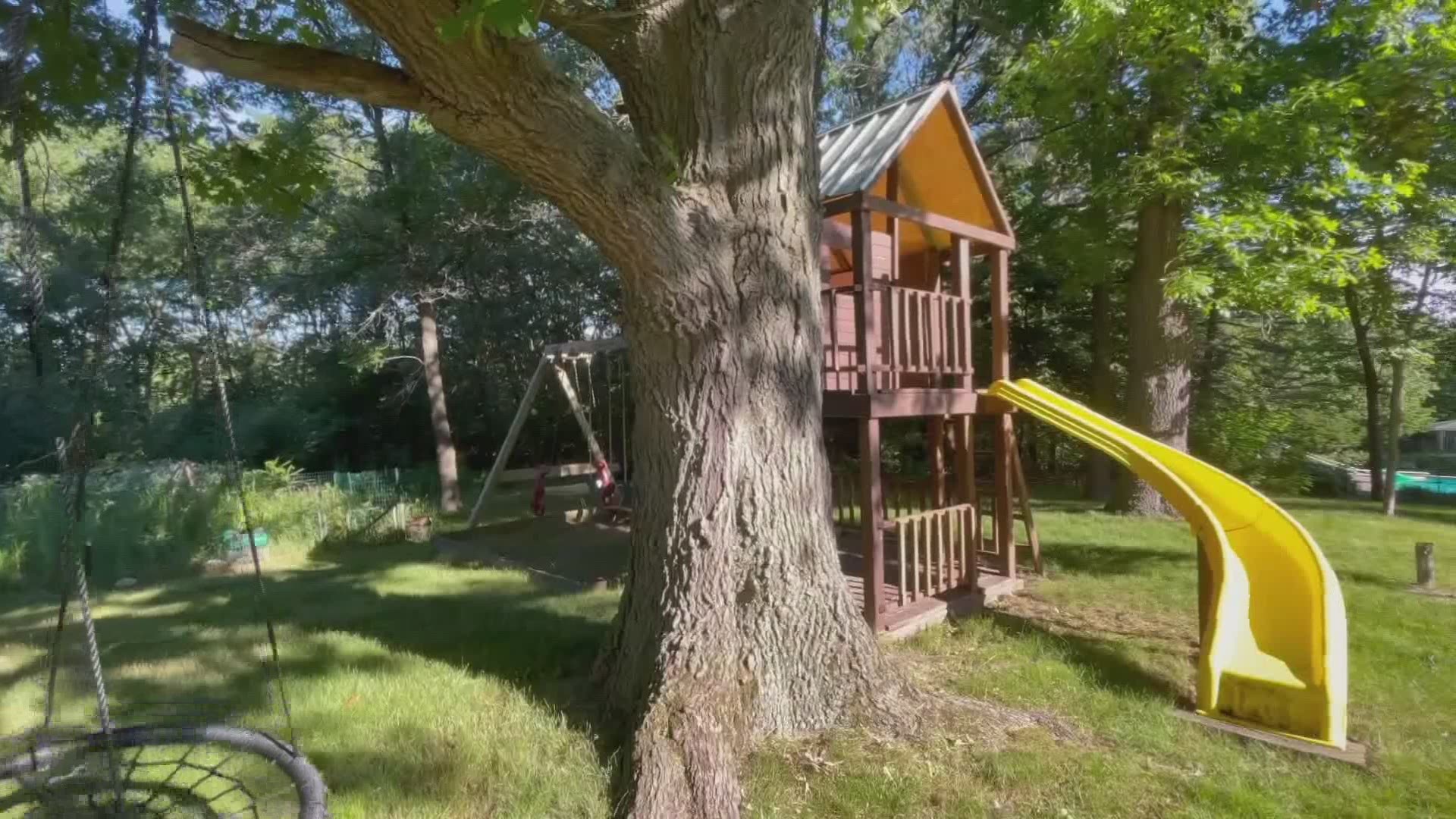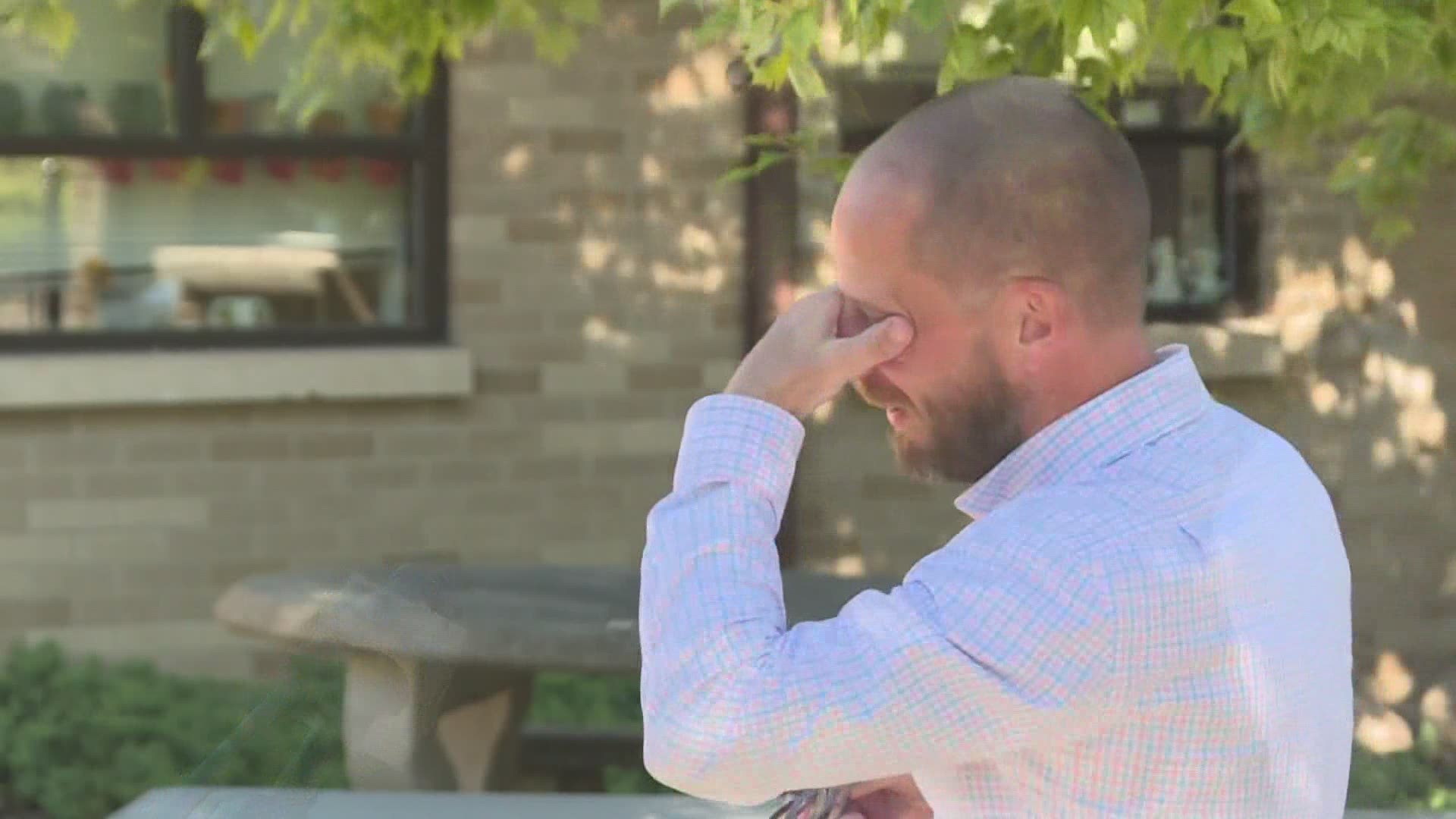GRAND RAPIDS, Mich. — They provide safety and shelter for some of society's most vulnerable children. As such, foster parents are an essential part of the child welfare system. However, when many assume that role, they soon learn it involves making a commitment to more than just their foster children.
"From the beginning of our training for foster care, it was clear that reunification was the priority," says Rich Haadsma, who has fostered several children alongside his wife Stephanie. "Well, for us foster care has come naturally. We raised three kids of our own. When we reached the point where our kids were leaving home, we felt like we had more to give. When the opportunity came up to do foster care, we kind of jumped at the chance."
Haadsma had great role models. He grew up in a home with parents who fostered more than 100 newborns over a span of 40 years. That, and a strong desire to help families in need, is what convinced the Haadsmas to open their home and hearts.
"Life is hard. Life is a struggle for kids, life is a struggle for parents. And there's, there are kids out there that needed a place. I saw a lot of homelessness and drug addiction, and various things that I knew were coming from some level of broken homes, and it just seemed like, how can you get ahead of that big trauma for kids, and try to help them through it. So I think that was something that was on my mind. How can they get ahead of that situation."
Statistics show that on any given day there are about 14,000 Michigan children living in foster care. People like Rich and Stephanie offer them so much more than a place to live.
"These people are so incredibly critical in the lives of these kids," says Katy Buck, director of communications for D.A. Blodgett - St. John's. "What they do for a period of time will change these kids lives forever. They become successful adults; and, a lot of times they can break generational cycles. So again they are extremely critical in this process and we are so grateful for all of our foster parents and the amazing work they do."
The West Michigan agency provides more than 20 comprehensive services for children and their families. They include mentoring, residential treatment, adoption, counseling, in-home family support, and foster care. Buck says reunification is one of their the number one priorities.
"The motto we have at D.A. Blodgett - St. John's is kids belong with their families, and not from their families. So, we do everything we can to support both our bio families and kids to make sure they can be reunified when it's safe," she said.
"We too believe that," said Rich Haadsma. "The best thing for kids is to be with their biological parents. I think that that's where kids become most confident. That's where kids are most comfortable, and especially if there's extended family. It's not just always the parents, you know, there's the extended family. And so, being part of a larger family group, I think, is important."
However, they recognize managing the best interest of foster children and their biological parents can be a delicate balancing act.
"A lot of times these parents have had struggles of their own. A lot of times these family settings are multi-generational, and the parent may be in a situation that is almost no fault of their own. Now, here they are having to try to work with an agency and clean their lives up," say Stephanie. "So having as much empathy for the bio-parents, as you do the children, is a big deal. And, that's hard too, because at times you can become angry with parents, for what they are doing, or not doing, and how that's affecting the children that you now care so much for."
Buck says every situation is different, but her agency offers a variety of resources, such as help with counseling and housing, to reunite families.
"Whatever the family and kids need, we have the support in place that is necessary to make them successful," says Buck. "Again, we believe the best place for them to be is with their biological parents, when that is safe. So, we need to make sure that they have all the resources, training and skills in place to be a safe and loving home to return those children to."
Reunification rates vary throughout the state of Michigan. Buck says, in 2020, D.A. Blodgett - St. John's served 223 kids in their foster care program, and were able to reunify 11% of those children back with their biological families.
Stephanie Haadsma says she and Rich were intentional about establishing a relationship with the biological parents. She believes that is essential to building trust and strong relationships with the kids.
"They could see the way we were treating them and caring for them, and know we had respect for their parents. So, you know, we talked about that all the time. You do have to be careful because we don't know what the outcome is going to be. We don't have a big picture. So, we can't promise these kids, 'oh, you know, your next court hearing you're going home,' because you just don't know. We just let them know, 'mom and dad are working hard and they love you, in the meanwhile, we're here for you.' Then, we trust things to work out," said Stephanie.
"You kind of walk a line of knowing that you have to save some of your heart, to let them leave. But yet, you have to engage enough so that they know they're loved, when they're with you."
She says when children see all the adults working towards their best interest, it makes a huge difference.
More information on D.A. Blodgett - St. John's foster care program can be found here.
►Make it easy to keep up to date with more stories like this. Download the 13 ON YOUR SIDE app now.
Have a news tip? Email news@13onyourside.com, visit our Facebook page or Twitter. Subscribe to our YouTube channel.


